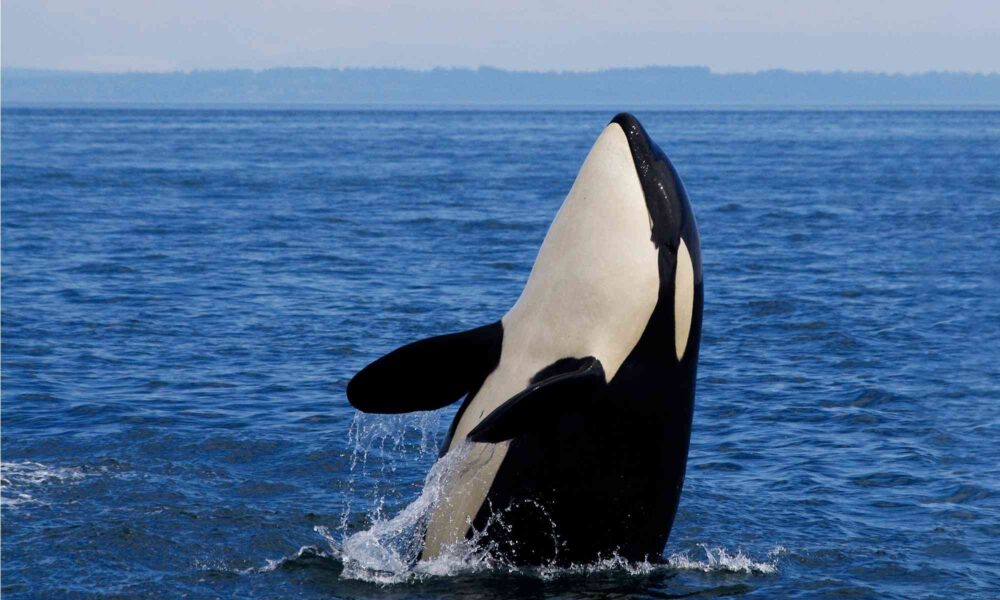
Underwater Video Records Orcas Participating in Close Contact Activities in Both Captive Environments and Their Natural Habitat

If you frequent the animal section of TikTok, you must have come across clips of animals seemingly kissing. This can range from adorable, with kittens cleaning each other, to bizarre, with cows nibbling on each other’s faces. However, kissing isn’t limited to terrestrial creatures. Researchers have captured orcas “French kissing” on film in various underwater settings. Although it might appear a bit strange, it provides valuable insights into whale behavior.
Initially, these peculiar “kisses” among orcas were documented in captivity. One instance was recorded at Loro Parque, a zoo located in the Canary Islands, in 2013. “In that instance, one individual extended its tongue while the other exhibited gentle nibbling actions,” explain Dr. Javier Almunia, the director of Loro Parque; Johnny Van Vliet; and Debbie Bouma in a study published in Oceans. “The behavior transpired in three phases, paused by the retraction and re-extension of the tongue, with a total duration of around 15 seconds.”
In a separate 2019 study, in which Almunia also participated, researchers examined the social behaviors of orcas at Loro Parque. This “gentle tongue bite” was categorized as an affiliative behavior rather than being sexual or aggressive. This is due to the animal interacting with the other’s tongue using its teeth without biting, and it was observed among females and juvenile orcas. It is also noted alongside actions like swimming in tandem, playing, and resting together.
Since orca kisses had previously only been documented in regulated settings, scientists were astonished when they inadvertently recorded two orcas engaging in the act during a snorkeling trip by citizen scientists in a Norwegian fjord. This encounter lasted roughly two minutes and appears somewhat milder than the prior example. It is characterized as involving “repeated instances of gentle, face-to-face oral interaction.”
Having witnessed this uncommon behavior in orcas both in the wild and in captivity, the researchers assert that it indicates it is not a behavior prompted by confinement-related circumstances. “This observation further supports the interpretation of tongue-nibbling as a socially affiliative behavior, likely aimed at strengthening social ties, especially among juveniles,” the scientists convey. “The sustained nature of this interaction in managed groups from distinct Atlantic and Pacific lineages underlines its behavioral preservation across varying contexts.”
There are several theories regarding why whales might engage in this form of kissing, such as grooming, a playful activity, or a begging behavior. However, it primarily seems to be a method for enhancing bonds within their community. The enigma surrounding it highlights how much we still have to discover about these animals and suggests that a broader effort may be required to unravel it all.
The researchers comment, “This discovery highlights the significance of underwater ethological observation in capturing hidden social behaviors in cetaceans and showcases the importance of integrating citizen science into systematic behavioral documentation.”
Related Articles:
– [Extremely Rare All-White Orca Captured on Film in Hokkaido](https://mymodernmet.com/all-white-whale-leucism-japan/)
– [Orca Who Carried Her Dead Calf for 17 Days Is Seen Mourning the Loss of New Calf in the Same Way](https://mymodernmet.com/tahlequah-orca-carries-dead-calf-again/)
– [Young Orcas Are Still Ramming Into Boats and Sinking Them, and Now We Know Why](https://mymodernmet.com/teen-orcas-sinking-boats/)
– [Lone Orca Is Seen Attacking and Eating a Great White Shark for the First Time Ever](https://mymodernmet.com/orca-kills-great-white-shark-africa/)